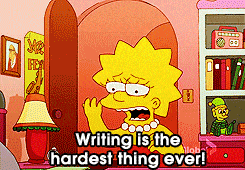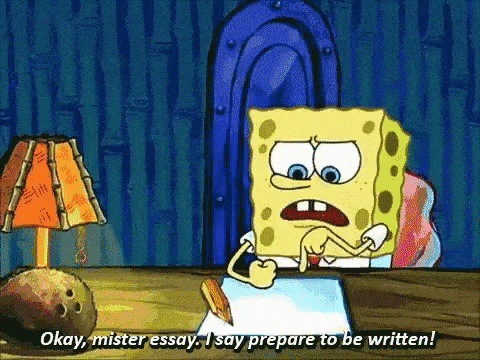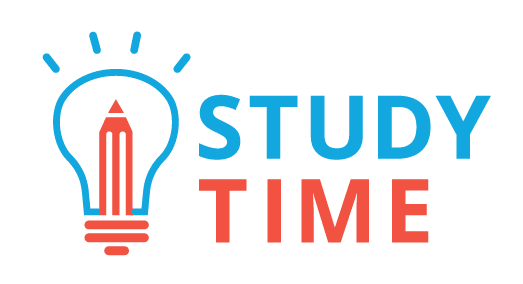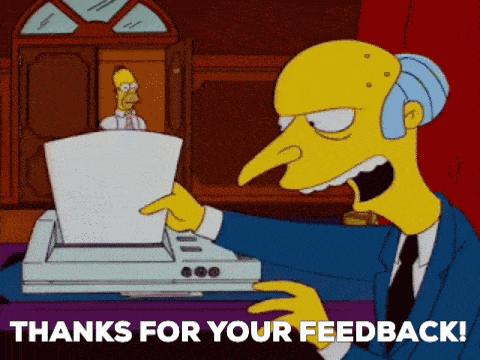Do you groan internally when your English teacher announces that you need to write another essay? Do you dread the tedious task of researching, drafting and editing your reports? Do you ever wonder – what’s even the point of writing?
Well, as annoying as it may seem, there is a good reason that you have to take English. It turns out that the ability to write well is actually a really important skill after you leave high school, even if you haven’t got your heart set on becoming an English teacher.
This article should help to clear things up about why you have to do those pesky essays. We might even give you some practical tips for writing in the “real world” along the way.

What are writing skills?
Before we get into how fabulous writing skills are, we need to address what we’re even talking about. You’ve probably been lectured before about what makes a piece of writing “good”. Essentially, it’s the extent to which you’re able to put your writing skills into practice. Writing skills are a number of abilities that help an author to clearly articulate their thoughts through words.
Whenever you’re writing an essay for English or history or even a report in science or statistics, you’re actually practising a number of different writing skills. Let’s take a look at some examples:
- Essay writing, speech writing and even scientific report writing often require you to practice the skill of constructing a convincing argument
- Essays, speeches and reports mean practising a variety of writing structures that make the writing coherent
- You’ll also have to practice choosing language that is appropriate for your target audience so that they can easily understand your piece
- Before you even set your pen to paper you’ll practise the skill of generating ideas and researching
- You’ll then use those ideas and research to practice making a plan
- Lastly, right before you turn in your piece you’ll exercise your ability to edit, refine and improve on your work.
The better you can do all of these, the better any piece of your writing will be.
Why bother with practising writing skills?
Because employers LOVE people with good writing skills. Careers NZ lists communication (speaking and writing abilities) as number 2 on a list of skills that are in demand, that’s second only to having a positive attitude. In addition, 95.9% of employers expressed that written/oral communication skills were essential skills for employees to have (as reported in the 2018 NACE Job Outlook Survey).
Here are just some of the things you might need to write in your future career:
- Daily communications (emails to clients and coworkers)
- Progress reports
- Arguing your case for a pay rise or a promotion
- Arguing your case if you work in a law firm or in marketing
- Writing up reports in the scientific field
- Crafting applications and CV’s to fit a particular job

But wait, there’s more!
Writing skills are more than just writing to practice writing. Every time you practice your writing skills, you’re also refining another set of soft skills that will look fabulous on your resume.
Let’s take a look at some of those.
Critical thinking
Essentially, critical thinking is the ability to evaluate information. This might mean thinking about its validity, reliability and how essential the information you’ve gathered is. You practise critical thinking at many stages of writing including, researching, planning and proofreading/editing as you look for the important points in your work.
Critical thinking is vital, no matter what career you’ve got in mind. Furthermore, according to the 2018 NACE Job Outlook Survey 99.2% of employers think that critical thinking is an essential skill so there’s really nothing to lose by improving your ability to think critically.
Want to know more about critical thinking? Here’s StudyTime’s breakdown on what critical thinking is, and why it’s so important.
Creativity
Creative and original thinking is a huge part of any writing that you do, even if it’s a formal researched essay or scientific report. Regardless of how much study you’ve had to do, an essential component of any writing is putting in your own opinion or interpretation of what you’ve read. That requires your original and creative thinking. Many employers love when you’re able to come up with your own thoughts as it means you’ll really add something to the company.
Researching and planning
Having good research and planning skills means you’ll be able to look up information that you need really easily. Without research, you can’t really prove that what you’re saying is true, and people might not take you seriously. Planning is also a fundamental tool that helps you figure out your direction and gives you a map to follow. This might be in your reports or presentations but could also help with a marketing campaign or project that you’ve been assigned to.
Problem solving and decision making
Problem solving and decision making is number 6 on the Careers NZ list of essential skills, so you know it’s right up there in important abilities. You practice problem-solving throughout any writing piece that you do, as well as in high school subjects like maths, science, and technologies.
In English specifically, you’ve got to solve the problem of how to approach your essay, which points to include, and how to best structure and present your ideas. Solving all those problems requires a lot of decision making on which solution to pick. Making decisions quickly and effectively is necessary no matter your career.
Appropriate communication
Whenever you write you usually have a specific audience in mind. Even though you know it’s your teacher who will ultimately be reading your piece, you still need to think about what audience your essay is directed at, whether it’s the general public, your classmates, or people with an academic background. That changes the type of writing you produce.
Having the flexibility to alter the style of your writing to suit different people is really important in the workplace. The language you use with your customers and clients will be really different to the language you use with workmates, your boss, and in formal work reports, so being able to consciously switch between these is super helpful.
Clarity
Learning to focus your work and present it in a structured and easy to read way helps get your point across easily. There’s often limited time in a day for you to get your message across, so being able to convey information clearly and precisely is super important, regardless of whether you’re at work, in NCEA, or studying at university.

Tips for writing in the “real world”
It’s no secret that writing at school isn’t exactly like writing in the real world. But not to worry, we’ve collated some tips that you can focus on whenever you’re doing writing that will help to prepare you specifically for the writing you’ll do once you graduate into the big wide world.
Read examples.
You might be surprised to find that one of the top tips to improve your writing doesn’t actually require you to research, think or plan anything. Reading the writing of others might not seem like much, but it’s a great place to start if you want to get better at a particular type of writing. Looking at other people’s work gives you some ideas about the types of language, structure, tone and format that you should be using. For example, you could read through some CVs, reports or marketing campaigns that you find online and apply the conventions you find to your own writing.
Practice planning.
As we’ve discussed, planning is a skill that helps you organise your thoughts and turn your brainstorms into a structured piece of work. Again, practising this skill doesn’t actually require you to write anything; you can practise making plans without writing out a full essay or report. Having the ability to quickly and easily figure out how to make your report coherent is a game-changer in the workplace.
Think about the audience.
Start the practice of defining your audience every time you do a piece of writing. Who is it for? What kind of language and structure is appropriate for that group? What level of knowledge can you expect them to have? This skill comes in handy in heaps of places, for example, tailoring your CV for a particular job as well as knowing what to change when you’re writing up a formal progress report compared with an email to a client.
Keep things simple.
While it might feel like your teachers want you to explain and expand and explain some more, there’s little room for waffle in the real world. To be frank, you shouldn’t be waffling in NCEA either, but we know times are tough, so we’ll let you get away with it.
In almost any role, getting your information across in a clear and concise way is extremely valuable and stops people from wasting their time trying to figure out what you mean.
Proofread!
You might be super bored of your writing by the time you get to this step, but it’s actually one of the most important. Little grammar mistakes and spelling errors look terrible on a job application or professional email, so get into the habit of proofreading your work carefully. Reading your work aloud or using a text-to-speech function can be a great way to pick up on mistakes you might not have initially noticed, too.
Get some feedback.
If possible, ask your teachers for feedback on your writing. This helps you to get an idea of where you’re doing well and what areas you can improve in. You can focus on practising the most important parts of your writing getting you well on your way to being the well-rounded writer employers are looking for.
Final Thoughts
Essay and report writing may not be the highlight of your school career, but they definitely help you to be ready for what comes after NCEA. Not only do you learn writing skills that are handy when you need to write something for uni or for your future corporate lifestyle, but you also get to brush up on a ton of great soft skills that’ll be useful no matter what you get up to in the future.
You might still wish that you didn’t have to write that essay on 1984 or do a report on bivariate data, but at least it’s not totally pointless. The skills you learn along the way are well worth the suffering you go through trying to finish your assignments.




0 Comments